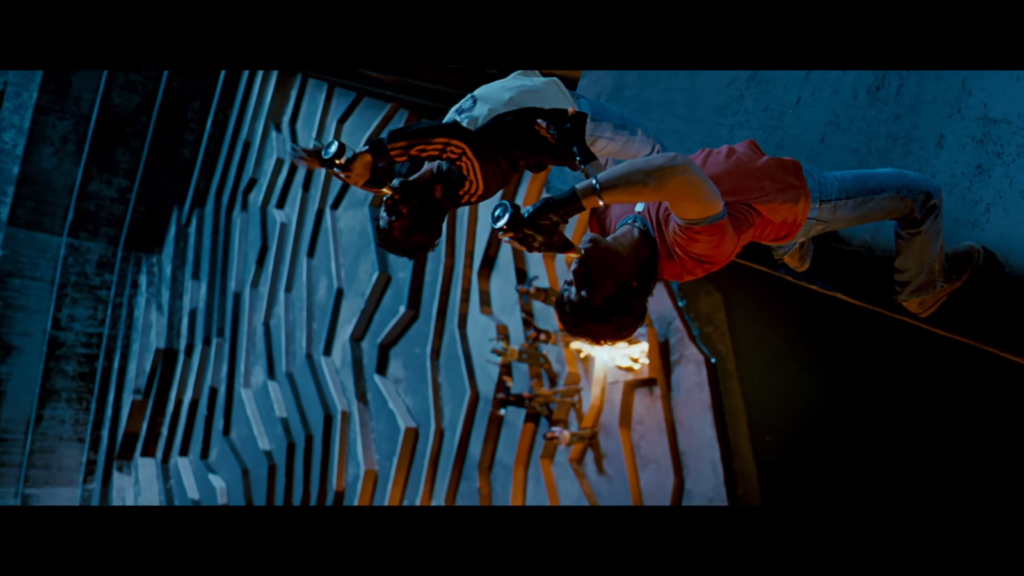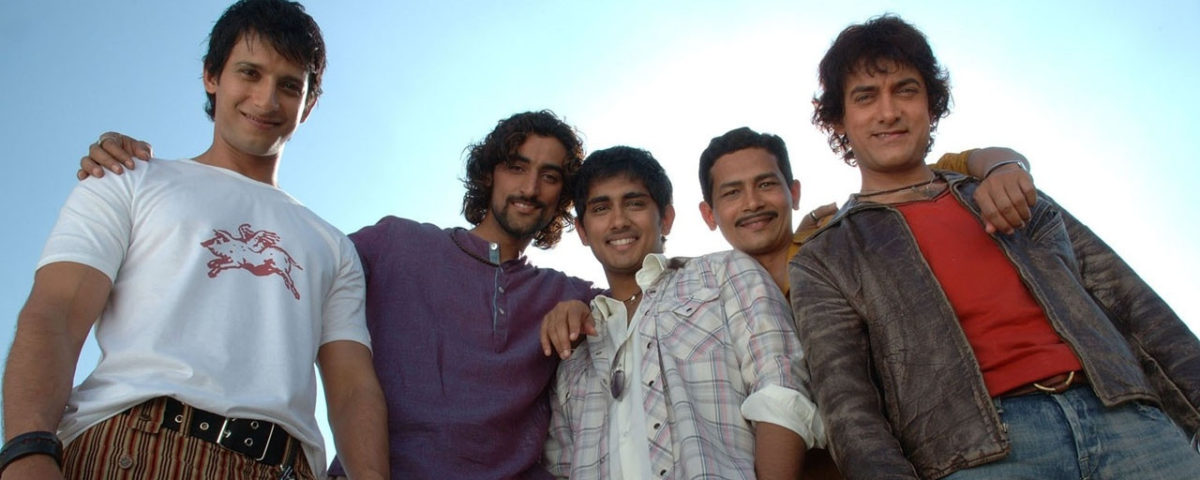Another Underrated List is yet another list of so called “underrated” films from yet another white guy who writes about films on the internet. This issue, I’m adding Rang De Basanti, the first Bollywood musical I ever watched, to that list.
My yearly, Spotify Top 100 Songs have always been a, shall we say “interesting” mix of songs bearing little relation to one another. In the 2018 edition, you’ll find some recent releases like Janelle Monae’s Dirty Computer and Mitski’s Geyser, but you’ll also find songs from the likes of Russell Crowe, Frankie Lane, Incubus, and the Irish Rovers. You’ll even find some songs, like a piece from the score of The Valley of Gwangi, that I’m not even sure how they got ended up in the playlist. Yet, the song that stands out the most in this playlist, the song that ended up being my #1 song of 2018, is “Rang de Basanti“, from the film of the same name.
Despite my burning passion and desire to study film, due to a multitude of reasons, I only took one offical “film” class during the course of my college career. It was in that class, South Asian Film and Literature, in which I first watched Rang De Basanti. Even though said class was heavier on the literature side, in it we watched four vastly different films from the Indian subcontinent; Mira Nair’s Monsoon Wedding, the Pakistani, partition tragedy Silent Waters, the Bengali coming of age drama The Clay Bird, and lastly, in the week before finals, Rang de Basanti. (Rang Day Bah-san-tea)
My professor told us that the title literally translates, to “paint it saffron”, but I’ve also seen it as translated as “colour it saffron”, “paint it with the color of sacrifice”, and “watch as it brings out the color of patriotism.” At first, I was utterly baffled by this title. However, the more times I’ve watched Rang De Basanti, the more apparent the political messages that the title alludes to have become.
Like a lot of Bollywood movies, Rang De Basanti has a white, English woman at the center of it. Sue (Alice Patton) is a producer hoping to make a film about a group of Indian revolutionaries, based on the diary of her grandfather, the British officer who tasked with eliminating them. To do this, she in enlists the help of Sonya (Soha Ali Khan), who leads her to cast a misfit group of “college” students, Karan (Siddharth Narayan), Lakshman (Atul Kulkarni), Aslam (Kunal Kapoor), Sukhi (Sharman Jhoshi), and their leader DJ (Aamir Khan), to play the revolutionaries.
In the beginning DJ and the guys are your stereotypical, hard partying, cool college students, even though most of them graduated from college years ago. Their “classroom” is a Hindi religious site, which provides the perfect place to drink, dance, and ignore responsibility. They’re cynical and could care less with the fate of their nation. Sue even witnesses DJ bribe a police officer, and as she is stunned by this, Karan replies, “Welcome to India.”

Yet, as the guys agree to act in Sue’s movie, what starts as just another fun escapade for them, turns into something much more. Via juxtaposition between shots of them in the present, and shots of them as the revolutionaries, we witness their political awakening.
The central question in Rang de Basanti, in both the flashblacks to the revolutionaries, and in the present, is the future of India, or its lack thereof. All the politicians are corrupt. Everyone is taking bribes and looking after their own self interests. No one asks what good they can do for their country, only what good it can do for them, i.e. how much money they can make off it.
As the guys inhabit the revolutionaries, we see them grow more and more inspired by the revolutionaries they are playing. If the revolutionaries could be believe in a brighter future and take action to achieve it under the oppression of British, couldn’t they do the same in the present day? Could they do something good to change current India.
Then shit hits the fan.
Upon my first watch of Rang De Basanti, I was utterly stunned by how quickly it went from 0 to 100. Since we watched the film over the period of three classes, everything was fun and games in the first two classes and then in the third everything wasn’t. While I won’t say anything more of this rapid shift in plot and tone, to avoid spoilers, after having watched it three more times, it is heavily foreshadowed.
I can’t speak to how reflective Rang De Basanti is to the current political situation in India, as other than watching a few episodes of Patriot Act with Hisan Minhaj, I haven’t spent much time researching it since the end of my South Asian Film and Lit. Class. However, I can speak to how Rang De Basanti is a good starting point for anyone interested in delving into India’s complex history and culture, from the Partition to current government of Narendra Modi.
Or, at the very least, it might peak your interest in Bollywood.
It certainly peaked mine.
Rang De Basanti is currently streaming on Netflix.
Originally published in June of 2019.
